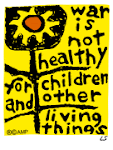The sun, it rises slowly as you walk
Away from all the fears
And all the faults you've left behind
The harvest left no food for you to eat
You cannibal, you meat-eater, you see
But I have seen the same
I know the shame in your defeat
But I will hold on hope
And I won't let you choke
On the noose around your neck
And I'll find strength in pain
And I will change my ways
I'll know my name as it's called again
Cause I have other things to fill my time
You take what is yours and I'll take mine
Now let me at the truth
Which will refresh my broken mind
So tie me to a post and block my ears
I can see widows and orphans through my tears
I know my call despite my faults
And despite my growing fears
But I will hold on hope
And I won't let you choke
On the noose around your neck
And I'll find strength in pain
And I will change my ways
I'll know my name as it's called again
So come out of your cave walking on your hands
And see the world hanging upside down
You can understand dependence
When you know the maker's hand
So make your siren's call
And sing all you want
I will not hear what you have to say
Cause I need freedom now
And I need to know how
To live my life as it's meant to be
And I will hold on hope
And I won't let you choke
On the noose around your neck
And I'll find strength in pain
And I will change my ways
I'll know my name as it's called again












